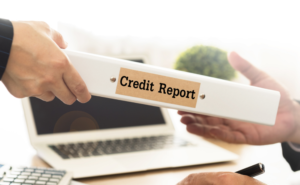What Is CBNA On Credit Report?
Did “CBNA” recently appear on your content report, and you’re unsure what it is? Are you wondering what this might mean? Worry not! You are definitely the only one struggling with this thought. So, in this blog, we will clear out the air for you by going into detail about what CBNA is.
What is CBNA on Credit Report?
The CBNA account shows a hard inquiry of your credit history. CBNA is a credit report code usually used to refer to the Citibank of North America. Citibank North America (CBNA) is the United States’ fourth-largest credit card issuer.
You’ve certainly heard of them because of their popular credit cards and co-branded cards with brands like Best Buy. As previously stated, the presence of CBNA on your credit report shows that Citibank has made a hard credit inquiry into your account.
When a bank or credit card firm makes a hard credit inquiry on you, it indicates that the potential lender is looking into your credit since you’ve applied for credit with them. When you apply for a credit card, a mortgage, or a vehicle loan, you will most likely receive a hard credit inquiry.
What Is A Hard Inquiry?
A hard inquiry is documented on your credit report when a lender or firm seeks to check your credit report as collateral for the loan application process. It typically influences your credit score.
Hard credit inquiries harm your credit score. A hard credit inquiry will reduce less than five points from most customers’ credit reports. A credit inquiry may affect your credit score more if you have a few credit accounts or short credit history. Having a large number of hard credit queries in a short time might harm your credit score.
It shouldn’t be concerning if you see a CBNA inquiry on your credit record after applying for a CBNA credit card or loan. Hard credit inquiries are a necessary element of the application procedure for a new credit account. You can ask the institution to delete the credit inquiry off your report in writing, but this isn’t always possible, especially if the query isn’t fraudulent.
How Long Does A CBNA Inquiry Stay On Your Report?
A hard inquiry on your credit record might stay on your report for up to two years. Each time a hard query is made, one or more of the three main credit bureaus — Equifax, Experian, and TransUnion – keep track of it.
One hard inquiry on your credit report, such as CBNA, will not significantly impact your credit score. Multiple credit inquiries within two years, on the other hand, might have a major influence on your credit.
How To Remove CBNA From Your Credit Report?
Lexington Law is a credit repair law firm that specializes in eliminating CBNA queries and other bad items from your credit record. They have over 28 years of work experience and have helped their clients eliminated over 10 million negative items in 2018.
Not only a hard inquiry, but Lexington law might also help you with a few more negative data on your credit report, such as; late payments, chargeoffs, foreclosures, judgments, bankruptcies, etc.
However, there are a few ways to dispute CBNA from your credit report.
1. Send a dispute letter:
If you feel Citibank caused the error, send a letter to them. For example, they made a hard inquiry and reported that there was a late payment on your side when you actually paid on time. If you feel the credit bureaus made a mistake, send it to them.
In either case, sending copies of the letter to both parties is typically a good idea (the bureaus and Citibank). They may communicate with one another while examining the situation, and it’s critical to ensure that everyone has gotten the necessary information. After registering your dispute, the credit bureau has 30–45 days to investigate and fix any false information on your report.
2. Use A Credit Repair Company:
A credit repair business will operate as a go-between for you and your creditors (and the credit bureaus). By assisting you in gathering proof and arranging the essential communication, they may be able to remove a hard inquiry or other SYWMC/CBNA item from your credit report.
As we mentioned earlier, Lexington Law is one of those credit repair firms that might be able to help you with a hard inquiry on your credit report.
While hiring a credit repair company might save you time and effort for disputing issues on your credit report, however, you should keep in mind that they can’t do anything for you that you can’t do yourself.
They won’t be able to erase legitimate negative information or instantly turn a bad credit score into a good credit score. So, think twice before using a third-party business to remove SYWMC/CBNA from your credit record.
3. Notify The Three Credit Bureaus:
It would be best if you established a credit freeze on your credit report after recording the query with the Federal Trade Commission, which restricts access to your accounts and limits the number of additional queries that may be made. You must call each of the three credit bureaus separately.
4. Monitor Your Credit Onwards:
If you get a hard query one time due to something that you didn’t do, make sure to keep a check on your credit from then onwards to see if there is a change in your credit record. Moving ahead, it’s critical to keep an eye on your credit report to ensure that any fraudulent activity is immediately identified and removed. Credit monitoring is a good habit since it may help you avoid significant, bogus activity and understand your credit score. This may be accomplished by frequently getting free copies of your credit report from the main consumer credit agencies.
“What is CBNA on my credit report?” is a query many people have pondered. When people see those letters on their credit record, they may worry if they’ve applied for a CBNA credit card. Suppose you see a CBNA inquiry on your credit report. It signifies you’ve applied for a credit account with one of the institutions listed in those letters, or you have an outstanding debt with the Credit Bureau of North America.
If you see a CBNA query on your credit report, you’ve recently applied for a credit card, and there’s nothing to worry about. If you haven’t applied for a credit card yet, you’ll need to take action as soon as possible.
Regularly check your credit reports from the three major financial institutions that track your credit – often known as the three major credit bureaus. Checking your account regularly guarantees that there are no errors that might harm your credit score and protect you from identity theft.
Annualcreditreport.com is a free credit report website where you can acquire a free copy of your credit reports.
It’s best to notice unusual behavior on your reports as soon as possible. This enables you to limit the amount of harm caused by these unrecognized credit accounts. If you feel something is wrong with your credit report, you may want to contact a credit repair firm to safeguard your credit further.






